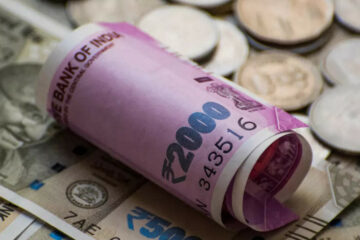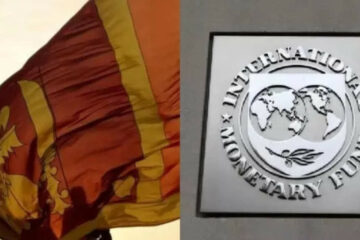[ad_1]
While the Sensex ended 465 points lower at 59,307.15 in Samvat 2078, Nifty ended 253 points lower at 17,576.30.
Historical data shows that Samvat 2078 was the worst year for Indian markets in the last seven years. Sensex ended last year 38% higher.
However, when seen from a global context, Samvat 2078 will go down in India’s stock market history as the year of India’s outperformance relative to developed markets and peers.
“The big question as we usher in Samvat 2079 is whether this outperformance will continue. Even though India’s valuations are high from the short-term perspective, economic and earnings fundamentals partly justify the valuation premium. More importantly, the DII/retail support to the market is becoming strong enough to eclipse the FII selling. This explains the logic of FIIs turning buyers (Rs 1,864 crore yesterday) when US bond yields are moving up and the 10-year yield is at 4.23 per cent,” said Dr. V K Vijayakumar, Chief Investment Strategist at
.
Sectoral rotation was evident in Samvat 2078 as old economy sectors like power, utilities, industrials and capital goods outperformed while the old favourite IT stocks ended up being the worst performers. New-age stocks were among the biggest wealth destroyers despite being favourites of retail investors, who were using buy-the-dip strategy.
While 3 Adani Group stocks gave multibagger returns, seven from the stable of Tata Group gave returns of over 50% since last Diwali.
Analysts said if one looks at the data from the last Samvat to the current one, there is hardly any difference among the performances of large, mid and smallcaps.
“On the contrary, smallcaps have performed better than largecaps. Therefore, the performance of the Indian equity market going forward would be driven more by small and midcaps,” said Sunil Damania, Chief Investment Officer, MarketsMojo.
In Samvat 2079, which begins from Diwali next Monday, veteran investor and Kotak Mahindra Mutual Fund’s MD Nilesh Shah said banks, capital goods, manufacturing are likely to outperform the market. “Tech and pharma will provide interesting opportunities on a bottom up basis in the correction,” Shah said.
Samvat 2078 turned out to be a challenging and forgettable year for global equities, given the many headwinds, including rate hikes, energy crisis, Russia-Ukraine conflict, continued supply disruptions, FPI outflows, heightened inflation, etc.
“We saw heightened volatility in the markets – more on the downside. Indian equity markets, however, proved resilient and outperformed most developed and emerging economies. Robust retail, HNI SIPs and lumpsum inflows helped offset the large outflows from FPIs without too much damage to the indices,” HDFC Securities said.
Domestic brokerage ICICI Securities has a one-year forward of Nifty at 19,425 (21x FY24 EPS) with sectoral bias towards banks, capital goods/infrastructure, autos. It has recommended investors to avoid sectors having more global exposure like IT, oil & gas and metals.
(Disclaimer: Recommendations, suggestions, views and opinions given by the experts are their own. These do not represent the views of Economic Times)
[ad_2]


